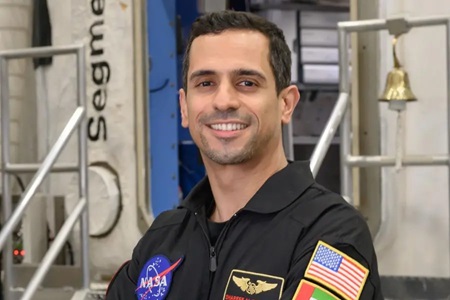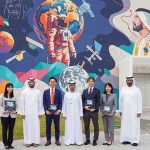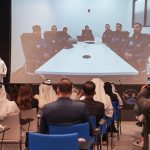The mission aims to study in-depth the effect of space flight simulated on Earth to support future long-duration space endeavours.

The Mohammed Bin Rashid Space Centre (MBRSC) has announced the commencement of the second phase of the UAE Analog Programme, with Emirati crew member Shareef Al Romaithi entering the Human Exploration Research Analog (HERA) habitat at NASAs Johnson Space Center in Houston, Texas, USA.
Al Romaithi, alongside primary crew members Jason Lee, Stephanie Navarro, and Piyumi Wijesekara, commenced their 45-day mission within the HERA facility. Alternate crew members Jose Baca and Brandon Kent are also part of this endeavour. The HERA habitat, a three-story structure, replicates space-like conditions on Earth, facilitating the study of crew adaptation to isolation, confinement, and remote environments akin to those encountered during long-duration space missions.
During their simulated journey, the team will undertake scientific research and operational tasks. Activities include a virtual reality walk on Mars’s surface and managing communication delays with the Mission Control Centre to simulate proximity to Mars. The crew is scheduled to exit the facility on June 24.
Salem Humaid AlMarri, Director General, MBRSC said: “The UAE Analog Programme is a cornerstone of our vision to integrate advanced scientific research with our strategic objectives, positioning the UAE as a leader in space technology both regionally and internationally. Through these detailed Earth-based simulations in collaboration with our partners at NASA, we are meticulously preparing our cadres for the vast challenges of deep space exploration, establishing the UAE and the broader Arab world as pivotal players in the international space community and inspiring generations to expand the horizons of human potential.”
The second analog study is part of a comprehensive four-phase initiative comprising 18 human health studies on Earth. These studies aim to comprehend the physiological, behavioural, and psychological responses of crew members in conditions resembling those anticipated during future lunar and Martian exploration missions. The UAE’s involvement in these research initiatives includes contributions from the United Arab Emirates University (UAEU), Mohammed Bin Rashid University of Medicine and Health Sciences (MBRU), and the American University of Sharjah (AUS) across all four phases of the analog study.















































































